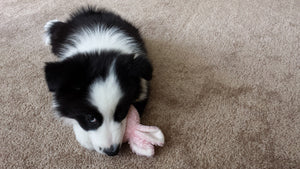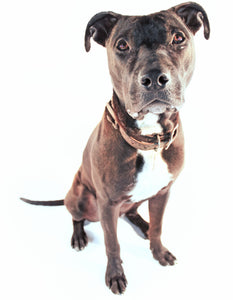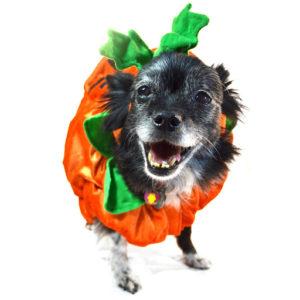Dehydration in Dogs: Symptoms and Solutions
Dehydration occurs when the body loses more fluids than it is taking in. Water loss is normal throughout the day as your dog drinks, eats, and uses the bathroom. When the balance of loss and intake is thrown off, dehydration in dogs can happen very quickly.

It’s important to prevent dehydration and to know what symptoms to look out for. Dehydration in dogs can be caused by a number of factors:
- Not drinking enough water
- Too much exercise on a hot day
- Acute attacks of vomiting or diarrhea
- Underlying causes like kidney disease or diabetes
Warning Signs of Dehydration in Dogs
Dehydration in dogs often comes on quite suddenly on a hot day as dogs can become overheated quickly. Dogs do not sweat in the same way people do, and they get overheated much more quickly and at much lower temperatures.
This is particularly true if going for a walk on a hot day, as the pads of a dog’s paws absorb a lot of heat from the ground. Here are some warning signs to look for to tell if your dog is dehydrated:
- Loss of appetite
- Dry nose
- Excessive panting
- Dry, sticky gums
- Thickened saliva
- Lethargy
- Loss of skin elasticity
- Vomiting
What to Do if Your Dog is Dehydrated
If you notice any of these symptoms, first offer your dog plenty of fresh, cold water. Then take them to the vet to get checked out. If your dog refuses to drink, your vet may administer fluids.
A dehydrated dog may need to have their electrolytes replaced since fluids containing electrolytes are drawn out of the cells when a dog is dehydrated. If your dog is not vomiting, you can try giving them an electrolyte-enhanced solution like Pedialyte.
Dehydration is often a symptom of a larger problem. In many cases, your vet will run some tests to determine the underlying cause and treat your dog accordingly.

How to Prevent Dehydration in Dogs
Preventing your dog from becoming dehydrated is the best way to reduce the risk of serious health complications. Here are some tips for preventing dehydration:
- Make sure your dog always has access to plenty of fresh water
- Flavor water with bone broth if your dog isn’t drinking enough
- Give your dog water-rich treats like watermelon
- Don’t exercise your dog on very hot days
- Give your dog some ice cubes to chew on a hot day
- Make sure your yard has plenty of shade if your dog likes to spend time out there
The most important thing is that your dog consumes enough water on a daily basis. As a general rule, dogs need an ounce of water per pound of body weight every day. Ask your vet for advice on how you can be sure your dog is getting enough fluids.





